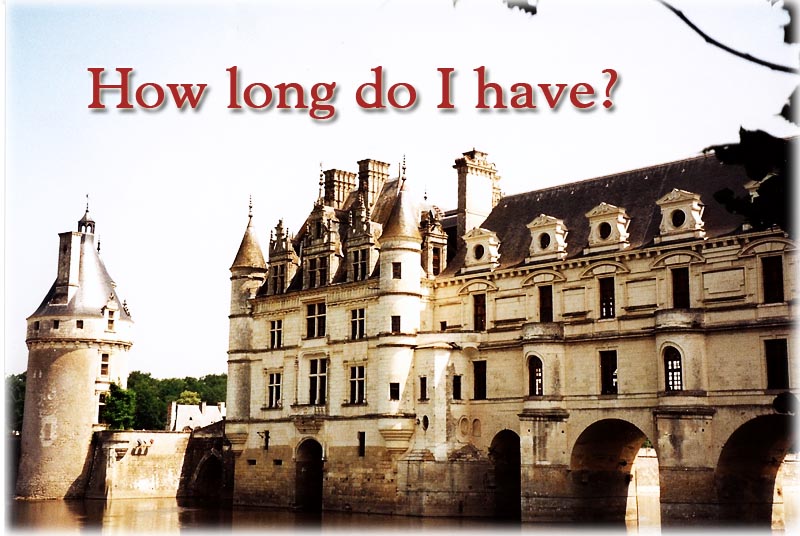We ask many questions in life—
Our tomorrows are limited and numbered.
We do all of this and more. We have to look inward to our very soul.
![]()
[2col1]We ask many questions in life, and usually those questions have to do with the future, with what lays ahead, the unseen and the unknown. If a physician tells us we have terminal cancer, understandably we want to know how long we have to live. Will we die soon? Will our death be painful or prolonged? No doctor,
of course, can tell us exactly how long we have; indeed, some people have been told they have three months, but have lived for three whole years, lived far beyond the doctor’s prognosis. The best any doctor can do, of course, is to tell us what is most probable, what is most likely, what has happened with other people in similar circumstances.
No doctor can tell us really tell us how to live, though; cannot tell us what we should do or say in the face of impending doom. A physician may sympathize with our plight, but he cannot tell us what we need to say to our children or to our wife. The responsibility of living ultimately belongs to us. The life we live is our life. All of us have to live out the life God has granted us. No one else can do it for us. And yet, encountering at last the news of our own mortality evokes very sobering thoughts.
For one thing, whatever we plan to do, we have to do it now. Our tomorrows are limited and numbered. It may be a quiet lake or ocean-side we want to visit one more time just to feel the salt air against our face. It may be that we want to talk to our children and tell them the long thoughts of our heart. Our words are those of a dying man, and maybe what we say now, they will hear and remember all of the days of their life. We hope so. Our coming death changes everything— we want to speak again and again with our wife. We want to eat our favorite food. We want to apologize and make right the wrong we have done. We may even want to speak with an enemy. Most of all, we want to speak to God. Death convinces us what is important in life and what is insignificant.
We do all this and more because circumstances compel us. Our time is short, and we have to look inward to our very soul. And yet, as important as the question of how long I have to live may be, there is even a great question, one far more pressing, more penetrating, and far more compelling. That question concerns my life before God, and how I have lived. How do I undo the wrongs I have done? Can my life ever be right again? What must I do to be heard by God?[endcol] [2col2]Fortunately, there are a number of instances in holy Scripture where such a question was asked. One such instance is the occasion where Peter preached to a large group, accusing them of having crucified the very Christ. The realization of what they had done must have been overwhelming because a spontaneous cry broke out during the sermon, a cry which interrupted Peter and chilled the very soul: “What shall we do?” (Acts 2:37).
Such a cry must have been uttered in inconceivable agony. No sin could have been more heinous, no wrong more damning, no mistake more final than to realize that you had killed the Son of God. To have ignored Christ would have been bad enough; to have insulted him even worse, but to have consented and demanded his death made the mistake especially irrevocable. If our oversight is the reason a child dies, no apology will ever bring the child back to his mother. There is nothing we can say. There is nothing we can do. Death has closed the door. So it was here.
I cannot imagine the pain those people must have felt when they realized what they had done— “What shall we do? What shall we do? What shall we do?” How could there ever be an answer to such a question? And yet, there was. Peter’s reply seemed to have come instantly and without hesitation, “Repent and be baptized every one of you in the name of Jesus Christ for the remission of sins” (Acts 2:38). Have you and I done that?
—James Sanders
[endcol]
